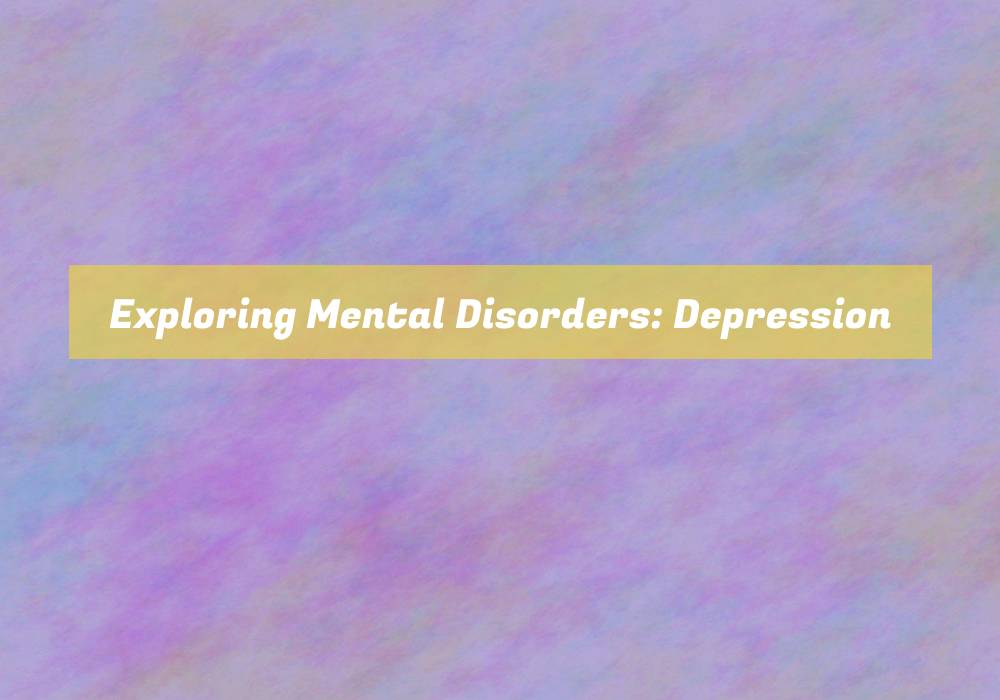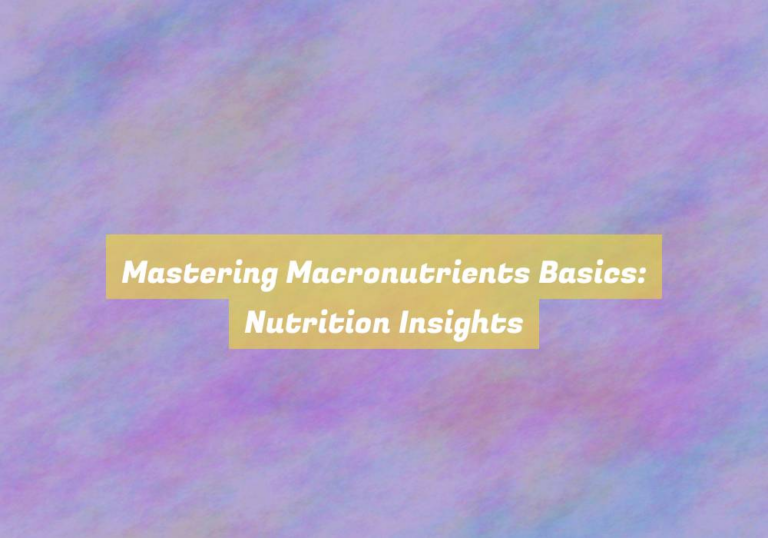Exploring Mental Disorders: Depression
You may think that you already know everything there is to know about depression. However, exploring this mental disorder from different angles can provide a deeper understanding that can be invaluable in both personal and professional settings.
Whether you are experiencing symptoms yourself, know someone who is, or simply want to gain insight into this prevalent condition, delving into the complexities of depression can shed light on a topic that affects millions of lives.
Understanding the symptoms, causes, and treatments of depression can offer a more comprehensive perspective and potentially lead to more effective ways of coping and supporting those who are affected.
Understanding Depression Symptoms
Understanding depression symptoms can be challenging, but recognizing the signs is an important first step in seeking help and support. ItG??s crucial to pay attention to changes in your mood, behavior, and physical well-being.
For example, feeling persistently sad, hopeless, or empty, losing interest in activities you once enjoyed, experiencing changes in appetite or weight, having trouble sleeping, or feeling fatigued and lacking energy can all be indicators of depression. Additionally, difficulty concentrating, making decisions, or experiencing feelings of worthlessness or guilt are common symptoms.
You might also notice increased irritability, restlessness, or physical aches and pains without a clear cause. ItG??s important to remember that experiencing one or more of these symptoms for an extended period could indicate depression. By being aware of these signs, you can take the first step toward seeking help.
Depression is a serious illness, but with the right support and treatment, itG??s manageable. DonG??t hesitate to reach out to a healthcare professional if you recognize these symptoms in yourself.
Exploring Depression Causes
Exploring the causes of depression can provide valuable insights into the factors that contribute to this mental health condition. While the exact cause of depression isnG??t fully understood, itG??s believed to result from a combination of genetic, biological, environmental, and psychological factors.
Genetic predisposition can make some individuals more vulnerable to depression, as it can run in families. Imbalances in neurotransmitters, such as serotonin and dopamine, may also play a role in the development of depression. Additionally, stressful life events, trauma, chronic illness, or certain medications can trigger or exacerbate depressive episodes.
Environmental factors, such as childhood trauma, abuse, neglect, or adverse life experiences, can have a significant impact on mental health and contribute to the development of depression. Furthermore, individuals with a history of other mental health disorders, such as anxiety or substance abuse, may be at a higher risk for experiencing depression.
ItG??s important to recognize that depression is a complex condition with multifaceted causes, and understanding these factors can help in developing more effective treatment and prevention strategies.
Navigating Depression Treatments
To effectively navigate depression treatments, itG??s essential to understand the diverse factors contributing to this mental health condition and how they influence the selection of appropriate interventions.
Depression can stem from various factors such as genetics, life events, brain chemistry, and medical conditions. ItG??s important to recognize that what works for one person may not work for another, and treatment often involves a combination of approaches.
The most common treatments for depression include psychotherapy, medication, or a combination of both. Psychotherapy, also known as talk therapy, involves speaking with a mental health professional to learn coping strategies and address negative thought patterns.
Medications, such as antidepressants, can help regulate brain chemistry and alleviate symptoms. Lifestyle changes, such as regular exercise, a balanced diet, and sufficient sleep, can also play a significant role in managing depression. Additionally, alternative treatments like acupuncture, meditation, or yoga may be beneficial for some individuals.
ItG??s crucial to work closely with a healthcare provider to determine the most effective treatment plan tailored to your specific needs.
Impact of Depression on Lives
Depression can significantly disrupt daily functioning and relationships, impacting various aspects of a personG??s life. It can affect your ability to concentrate, make decisions, and perform tasks, leading to decreased productivity at work or school.
You might experience changes in appetite, which can result in weight loss or gain. Sleep disturbances are common, with some individuals experiencing insomnia or oversleeping, further impacting energy levels and daily routines.
Depression can also affect your relationships, causing strain with family and friends due to withdrawal, irritability, or mood swings. It can diminish your interest in activities you once enjoyed, leading to feelings of isolation and loneliness.
The emotional toll of depression can be overwhelming, often leading to feelings of hopelessness and worthlessness. Additionally, it can increase the risk of developing other medical conditions such as chronic pain, heart disease, and substance abuse.
The impact of depression extends beyond the individual, affecting those around them, making it crucial to seek support and treatment.
Conclusion
In conclusion, depression is a complex mental disorder that can have a significant impact on individualsG?? lives.
Understanding the symptoms, causes, and treatments for depression is crucial for providing support and intervention for those affected.
By raising awareness and promoting open conversations about mental health, we can work towards reducing the stigma surrounding depression and creating a more supportive and understanding environment for those struggling with this condition.





